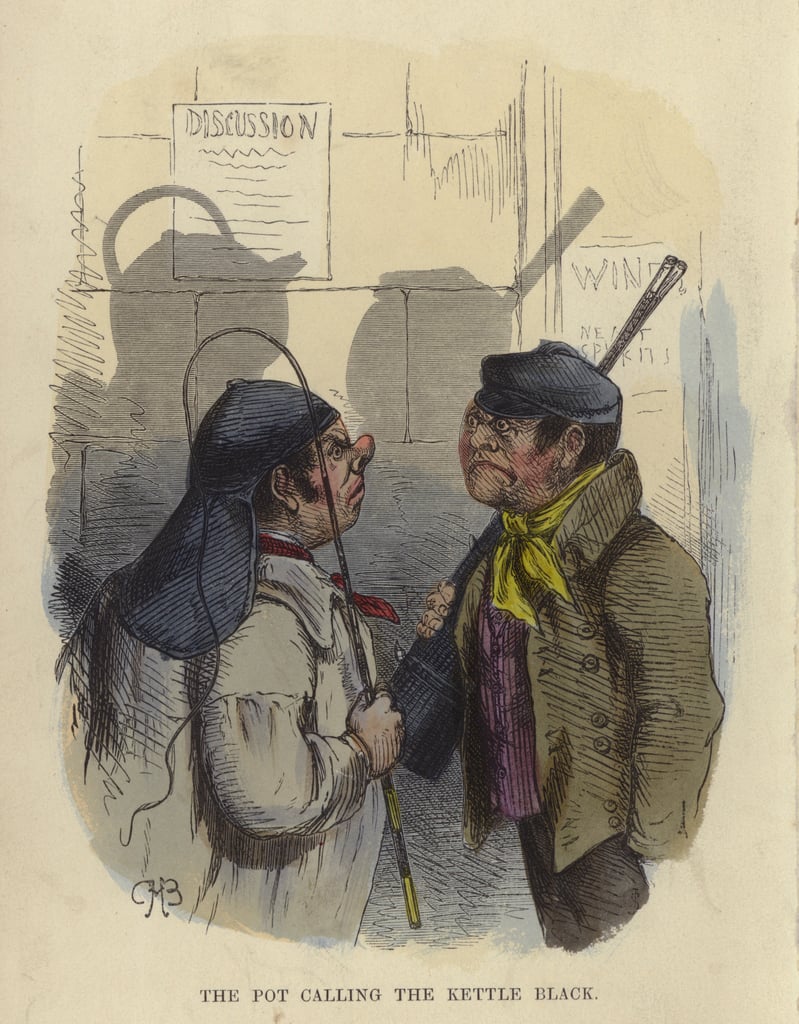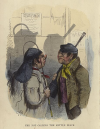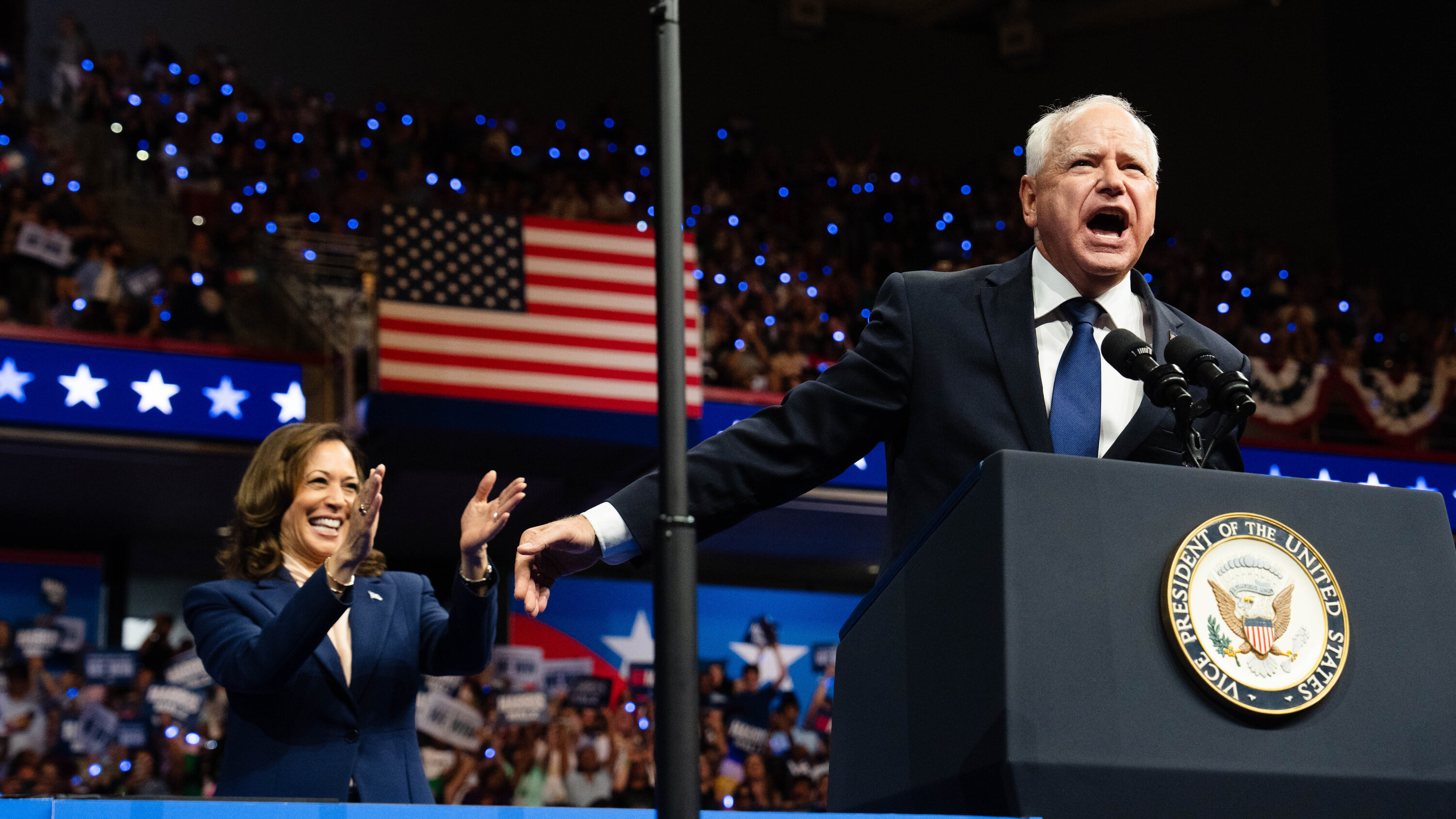army judge
Super Moderator
A photo widely circulated on social media Wednesday shows eight members of Democrat vice presidential nominee Tim Walz's extended family showing support for former President Donald Trump.
The photo, reportedly initially shared by a family friend, was posted on X by former Nebraska GOP gubernatorial candidate Charles W. Herbster, and a representative for Herbster told the Daily Mail those posing are related to Walz through his grandfather's brother.
The photo shows the people wearing T-shirts that read, "Nebraska Walz's for Trump," and they are standing in front of a banner that reads, "Trump 2024 Take America Back." Walz was born in Nebraska and as an adult moved to Minnesota, where he became a congressman and then governor.

The image, originally shared by a friend of the family, was later posted by Charles W. Herbster, a former gubernatorial candidate in Nebraska and a Trump ally. X Twitter
Herbster's caption, "Tim Walz's family back in Nebraska wants you to know something," further amplified the image's impact across Trump-supporting circles. The former president later reshared it on his Truth Social profile.
When asked about the authenticity of the picture, a representative for Herbster told Newsweek that those in the photo are related to Walz through his grandfather's brother and that it was shared by a family friend. The family gave Herbster permission to publish it online.
Newsweek reached out to the Trump and Harris campaigns via email for comment on Wednesday.
This is not the first time Walz's family has made headlines for their political differences. Jeff Walz, Tim Walz's older brother, has made a series of public comments that further highlighted the family divide. Jeff, a resident of Florida, posted on Facebook that he is "100% opposed" to his brother's political views.

Jeff Walz, Tim Walz's older brother, made a series of public comments that further spotlighted the family divide. Facebook /
"Not the type of character you want making decisions about your future," Jeff Walz wrote, referring to his brother.
The Facebook posts, originally from March 2023, have galvanized Trump supporters, who view the comments as ammunition against the Democratic vice presidential nominee.
Jeff Walz later clarified that while he strongly disagrees with his brother's policies, it was not his intent to influence voters.
"I was just trying to make sure my friends knew I didn't share the same views," Jeff Walz told NewsNation in an interview.
Jeff also expressed frustration that the family was not informed about his brother's vice-presidential selection until it became public, while also acknowledging that they have not spoken in years.
Despite calls from some Trump supporters for him to publicly endorse the former president, Jeff Walz has refrained from making any formal declaration of support.
Many users have drawn parallels to other instances of family members opposing politicians, such as Mary Trump's fierce criticism of her estranged uncle, Donald Trump.
In 2020, Mary Trump, published Too Much and Never Enough, a tell-all book about the former president and his family. In it, she says he is "utterly incapable of leading this country and it's dangerous to allow him to do so."
Update 9/4/24 2:30 p.m. ET: This story has been updated with new information.

 www.newsweek.com
www.newsweek.com
The photo, reportedly initially shared by a family friend, was posted on X by former Nebraska GOP gubernatorial candidate Charles W. Herbster, and a representative for Herbster told the Daily Mail those posing are related to Walz through his grandfather's brother.
The photo shows the people wearing T-shirts that read, "Nebraska Walz's for Trump," and they are standing in front of a banner that reads, "Trump 2024 Take America Back." Walz was born in Nebraska and as an adult moved to Minnesota, where he became a congressman and then governor.

The image, originally shared by a friend of the family, was later posted by Charles W. Herbster, a former gubernatorial candidate in Nebraska and a Trump ally. X Twitter
Herbster's caption, "Tim Walz's family back in Nebraska wants you to know something," further amplified the image's impact across Trump-supporting circles. The former president later reshared it on his Truth Social profile.
When asked about the authenticity of the picture, a representative for Herbster told Newsweek that those in the photo are related to Walz through his grandfather's brother and that it was shared by a family friend. The family gave Herbster permission to publish it online.
Newsweek reached out to the Trump and Harris campaigns via email for comment on Wednesday.
This is not the first time Walz's family has made headlines for their political differences. Jeff Walz, Tim Walz's older brother, has made a series of public comments that further highlighted the family divide. Jeff, a resident of Florida, posted on Facebook that he is "100% opposed" to his brother's political views.

Jeff Walz, Tim Walz's older brother, made a series of public comments that further spotlighted the family divide. Facebook /
"Not the type of character you want making decisions about your future," Jeff Walz wrote, referring to his brother.
The Facebook posts, originally from March 2023, have galvanized Trump supporters, who view the comments as ammunition against the Democratic vice presidential nominee.
Jeff Walz later clarified that while he strongly disagrees with his brother's policies, it was not his intent to influence voters.
"I was just trying to make sure my friends knew I didn't share the same views," Jeff Walz told NewsNation in an interview.
Jeff also expressed frustration that the family was not informed about his brother's vice-presidential selection until it became public, while also acknowledging that they have not spoken in years.
Despite calls from some Trump supporters for him to publicly endorse the former president, Jeff Walz has refrained from making any formal declaration of support.
Many users have drawn parallels to other instances of family members opposing politicians, such as Mary Trump's fierce criticism of her estranged uncle, Donald Trump.
In 2020, Mary Trump, published Too Much and Never Enough, a tell-all book about the former president and his family. In it, she says he is "utterly incapable of leading this country and it's dangerous to allow him to do so."
Update 9/4/24 2:30 p.m. ET: This story has been updated with new information.

More family members of VP Pick Tim Walz show support for Donald Trump
A leaked photo has circulated widely on social media, showing eight relatives of Governor Walz wearing "Walz for Trump" T-shirts.



